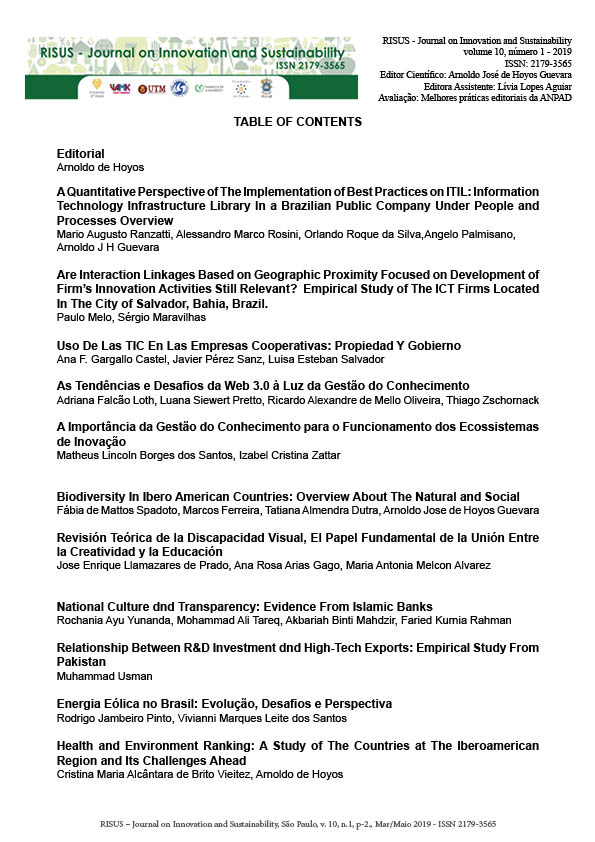THE TRENDS AND CHALLENGES OF WEB 3.0 IN THE LIGHT OF KNOWLEDGE MANAGEMENT
DOI:
https://doi.org/10.24212//2179-3565.2019v10i1p37-47Keywords:
Semantic Web, Web 3.0, Knowledge Management.Abstract
The Internet is one of the most sophisticated information and communication technologies currently available to society. It is also the necessary infrastructure for one of its largest and most wellknown applications: the Web, largely responsible for its popularization. The various information shared on the Internet are daily sources for various studies, foundations and decisions. However, despite the exponential growth of information available on the network, especially due to the democratization of the content creation process, the information is disorganized, incomplete and often inaccurate, making access and use difficult. In this context knowledge management, whose approach integrates the identification, creation, storage, sharing and application of knowledge to increase productivity, profitability and growth in organizations seems to influence the new era of WEB, WEB 3.0. Web 3.0 predicts that online content is organized in a semantic way, much more personalized for each user, intelligent websites and applications, and search and behavioral advertising. In this way, this article presents, from bibliographic research in secondary sources of data, the trends and challenges of WEB 3.0 in light of Knowledge Management, demonstrating their relationship and the importance of walking togetherDownloads
Published
2019-03-01
Issue
Section
Papers
License
This Journal is licensed under a Creative Commons Attribution-Non Commercial-No Derivers 4.0 International license.
1.The author (s) authorize the publication of the article in the journal;
2.The author (s) warrant that the contribution is original and unpublished and is not in the process of being evaluated in other journal (s);
3. The journal is not responsible for the opinions, ideas and concepts emitted in the texts, as they are the sole responsibility of its author (s);
4. The editors are entitled to make textual adjustments and to adapt the articles to the standards of publication.


